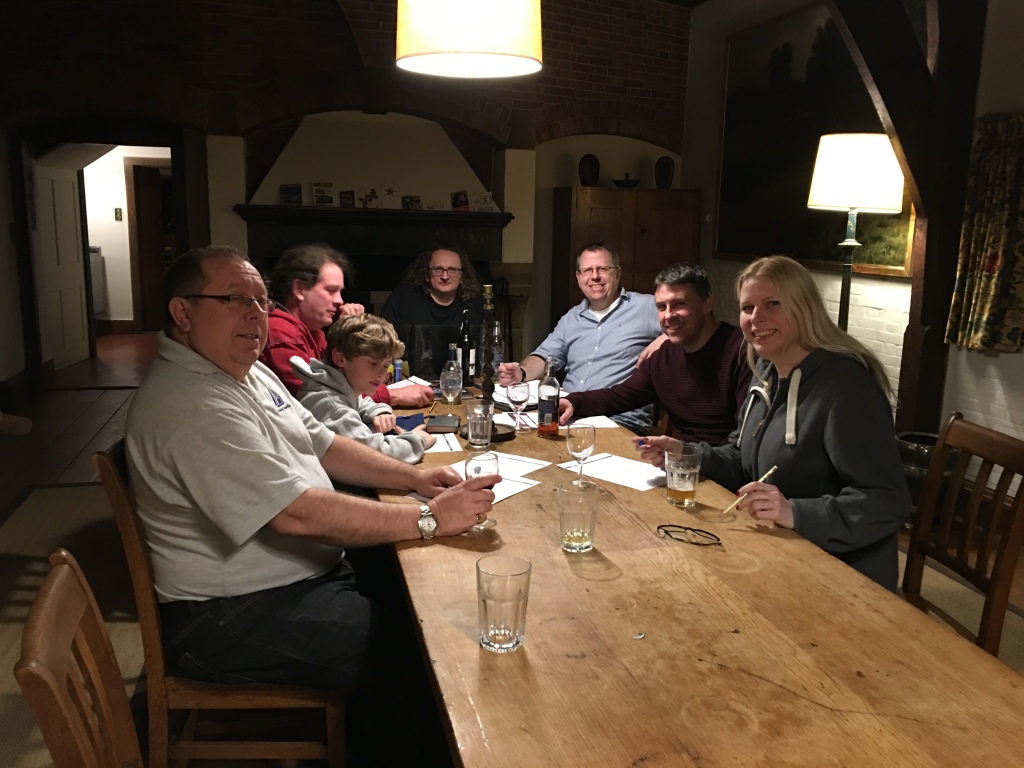
“Which RPG provides the most useful resources?”
Is it the core sets that provide the most useful resources? Or is it on-line services, supplements, campaigns etc? After-sales as it were? There are all sorts of ways I could answer this question, but I’m going to talk about published campaigns. And my current favourites are the excellent publications coming out of Pelgrane Press.
You might think that my definition of “resources” is hand-outs, and indeed the handouts for The Dracula Dossier are splendid. Take, for example, Dracula Unredacted, this hardback edition of Bram Stoker’s novel isn’t like any you can find in your local library. Passages from earlier drafts are reinstated, and indeed new passages are inserted, purporting to be bits that British Military Intelligence redacted from an after-action report of actual events before publication as a “novel” as part of a mis-information campaign. This particular copy though has marginalia written in three different hands, made as agents used this original proof as a source in their own investigations.
You can also get The Hawkins Papers, a variety of handouts in PDF form, including the letter demanding the redactions of Stoker’s novel. A particular favourite of mine (one page of which is illustrated above) is the letter detailing experiments upon children which keen readers with recognise as the Walkers and Blacketts from Swallows and Amazons, and the Pevenseys from The Lion the Witch and the Wardrobe. The PDF document is great, and some lucky (and high spending) Kickstarter backers got hand-made movie quality prop versions. But actually, hand-outs? Schmand-outs!
These are not the resources I am talking about.
Rather, the resource that I really value in Pelgrane’s supplements is research, knowledge and thus the appearance of being a shit-hot GM. The Dracula Dossier, and the first published scenario pack I bought, The Zalozhny Quartet are so well researched, by Gareth Rider-Hannrahan and the god-like Ken Hite that there are chock-full of real history and real facts about the real world that GMs can constantly amaze their players. Just throw-away an aside and it will turn out to be, not just important to the story being created but also, when they back up their in-game research with Google on the mobile, it seems the real world has changed to fit the story they are experiencing.
Case in point: one of my players is a University Professor of Music, to be fair, one who concentrates on 20th century musical theatre. I mentioned that the opera house in Vienna was running “Heinrich Marschner’s Romantic Opera Der Vampyre (1828)” and he went “Marschner didn’t write a Vampire opera, did he?” –goes away and consults whatever university lecturers consult (I assume Google, like the rest of us)– He DID!” My musicologist credentials were assured!
And again: one of my players serves in the Royal Signals. When they featured in an adventure, all the details were correct to his satisfaction (apart from the fact that he doesn’t get to work in a vampire related listening station). When the characters found a store of guns and ammo in the same place, he was about to complain that they would never be stored that way in the real military, just as I recounted the justification for the basic error that the authors had already supplied me. Boom! I’m a military expert!
One adventure (from The Edom Files) used pre-gens that, we later realised, where real people from the period. Shazam! I appear to be a contributor to the Dictionary of National Biography!
Not only that, they manage to arrange all these elements in a way that makes the adventure the most sandbox-y published adeventures I’ve ever used. The NPCs in The Dracula Dossier all have three description, for example, so you can decide whether being an innocent, and agent of Edom, or a vassal of Dracula on the fly.
These are what I call “useful resources”.





 This is so easy. No question, no doubt. What published RPG do I wish I was playing right now?
This is so easy. No question, no doubt. What published RPG do I wish I was playing right now?